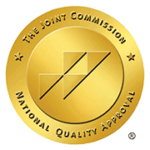Mental health awareness is the understanding and recognition of mental health issues that affect individuals’ thoughts, feelings, and behaviors. With increasing discussions on mental health, society is slowly recognizing its importance. However, one of the biggest hurdles to improving mental health is the stigma associated with seeking professional help for mental health. This article will explore how to break mental health stigma, the importance of mental health care, and why seeking help for mental health issues is critical for overall well-being.
Understanding Mental Health Stigma
Mental health stigma refers to the negative attitudes and beliefs people have about those with mental health conditions. These misconceptions often lead to discrimination, isolation, and reluctance to seek help. Mental health stigma can manifest in two ways:
Social Stigma: This involves the negative perceptions held by society. People may view those with mental health conditions as weak, unpredictable, or dangerous, which can lead to social exclusion.
Self-Stigma: This happens when individuals internalize these negative beliefs, which makes them feel ashamed or unworthy of support. As a result, they are less likely to seek professional help for mental health.
The Importance of Mental Health Care
Mental health care is essential to maintaining overall well-being. Just as physical health requires attention and treatment, mental health needs care and support. Mental health care includes therapy, counseling, medication, and other interventions aimed at improving emotional and psychological well-being. Recognizing the importance of mental health care is the first step toward reducing mental health stigma and encouraging people to seek help.
Mental health awareness campaigns have played a crucial role in educating the public about the reality of mental health conditions. These efforts emphasize that mental health issues are not a sign of personal failure but a health concern that requires attention, much like physical illnesses.
Breaking Mental Health Stigma
Breaking mental health stigma is critical to encouraging people to seek help. One of the ways to tackle this issue is through open conversations. When public figures, media outlets, and individuals discuss mental health openly, it normalizes the experience and reduces the shame associated with it.
Another approach is mental health education in schools and workplaces. Educating people about mental health, common conditions, and the benefits of seeking mental health support can change the narrative. Overcoming mental health stigma requires collective action from society to be more accepting and supportive of those facing mental health challenges.
Why Seeking Professional Help for Mental Health Is Important?
Seeking help for mental health issues is vital because it provides individuals with the tools and support they need to manage their mental health conditions effectively. Professional help for mental health includes seeing therapists, counselors, or psychiatrists who are trained to address mental health problems. They can provide therapies like Cognitive Behavioral Therapy (CBT), medication, or a combination of treatments tailored to individual needs.
Without seeking professional help, mental health issues can worsen, leading to a decline in quality of life, difficulty in maintaining relationships, and problems in work or school performance. Early intervention often leads to better outcomes, making it crucial to seek help at the first signs of mental health issues.
Overcoming Mental Health Stigma: Real-Life Examples
Real-life stories are powerful tools in overcoming mental health stigma. Take, for example, the increasing number of celebrities and athletes who have publicly shared their experiences with mental health issues. Their openness has helped change public perceptions and has shown that anyone, regardless of success or status, can face mental health challenges.
Case studies also show that workplaces with mental health support programs report lower rates of absenteeism, higher employee satisfaction, and increased productivity. By breaking mental health stigma in professional settings, companies are not only supporting their employees but also fostering a healthier work environment.
The Role of Mental Health Support
Mental health support can come in many forms, from professional therapists to peer support groups and family members. Having a strong support system is critical in helping individuals navigate their mental health journey. Mental health support helps people feel understood and less isolated, providing encouragement to continue seeking help.
There are numerous community programs and online resources available that offer mental health support, making it easier than ever to access help. These resources can guide individuals to the appropriate mental health care and offer a sense of community, which is vital in overcoming mental health stigma.
Steps to Encourage Seeking Help for Mental Health Issues
Encouraging people to seek help for mental health issues requires a multifaceted approach. Here are some steps individuals and communities can take:
- Normalize Conversations About Mental Health: The more we talk about mental health, the more we normalize it. Discussing mental health should be as common as talking about physical health.
- Provide Accessible Mental Health Resources: Communities, workplaces, and schools should ensure that mental health resources are easy to access. This includes having mental health professionals available, offering mental health days, and creating a culture where seeking help is encouraged.
- Offer Mental Health Education: Teaching people about the signs of mental health issues, the importance of seeking help, and how to support others can break down misconceptions.
- Share Success Stories: Hearing stories of individuals who have sought professional help for mental health and have improved can inspire others to do the same.
Conclusion
Breaking the mental health stigma is an ongoing effort that requires societal change, education, and open conversations. Mental health awareness campaigns have made significant strides in reducing the stigma, but there is still more work to be done. Seeking professional help for mental health should be encouraged and normalized, as it is a critical step toward healing and well-being. By overcoming mental health stigma, we can create a supportive environment where everyone feels comfortable seeking the help they need.If you or someone you know is struggling with mental health issues, reach out to available Mission Connection for support today.








